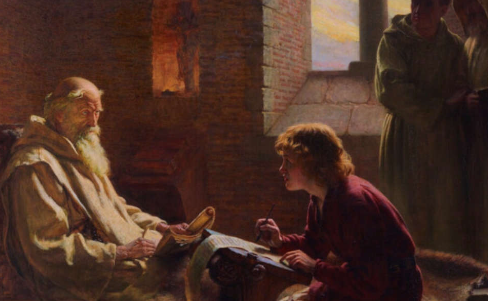Saint Bede the Venerable and Christian Scholarship
Saint Bede the Venerable is one of the most significant figures in early Christian scholarship. Living in the 7th and 8th centuries, he made revolutionary contributions to theology, history, and education. Understanding his influence on Christian scholarship is essential for those interested in the development of Western thought and the history of the Church.
Historical Context and Contributions
Bede lived during a time of great change in Britain, a period marked by the spread of Christianity among the Anglo-Saxons. His most notable work, “Ecclesiastical History of the English People,” provides invaluable insight into this transformation. Through meticulous research and a commitment to accuracy, Bede set new standards for historical writing. He combined biblical teachings with the historical context of his time, creating a narrative that not only records events but also interprets their significance in the light of faith. His approach established a model for future historians and theologians alike.
Scholarly Methodology
Bede was not only a historian but also a pioneering scholar. He adopted a systematic method of inquiry that emphasized careful research and the use of primary sources. His works reflect a profound respect for accuracy and truth, aiming to document events with integrity and clarity. Bede’s emphasis on learning from the past contributed to the flourishing of monastic education. His methods continue to inspire scholars today, demonstrating the ongoing importance of rigorous analysis in theology and historical studies.
Lasting Impact on Christian Thought
The influence of Bede extends beyond his own time, shaping the landscape of Christian thought for centuries. He was known for linking faith with reason, and his writings encouraged believers to engage intellectually with their faith. This integration of faith and scholarship laid the groundwork for the development of universities in Europe during the Middle Ages. Bede’s thoughts on scripture and theology resonate in modern discussions about faith and reason, highlighting the ongoing dialogue within Christian scholarship.
Conclusion
Saint Bede the Venerable is a vital figure in the realm of Christian scholarship, with contributions that still impact the academic world today. His commitment to rigorous historical methodology and the integration of faith and reason make him a model for scholars. If you find this topic intriguing, I encourage you to explore Bede’s works and learn more about his life and legacy in the field of Christian scholarship. There’s a wealth of knowledge waiting to be discovered!

